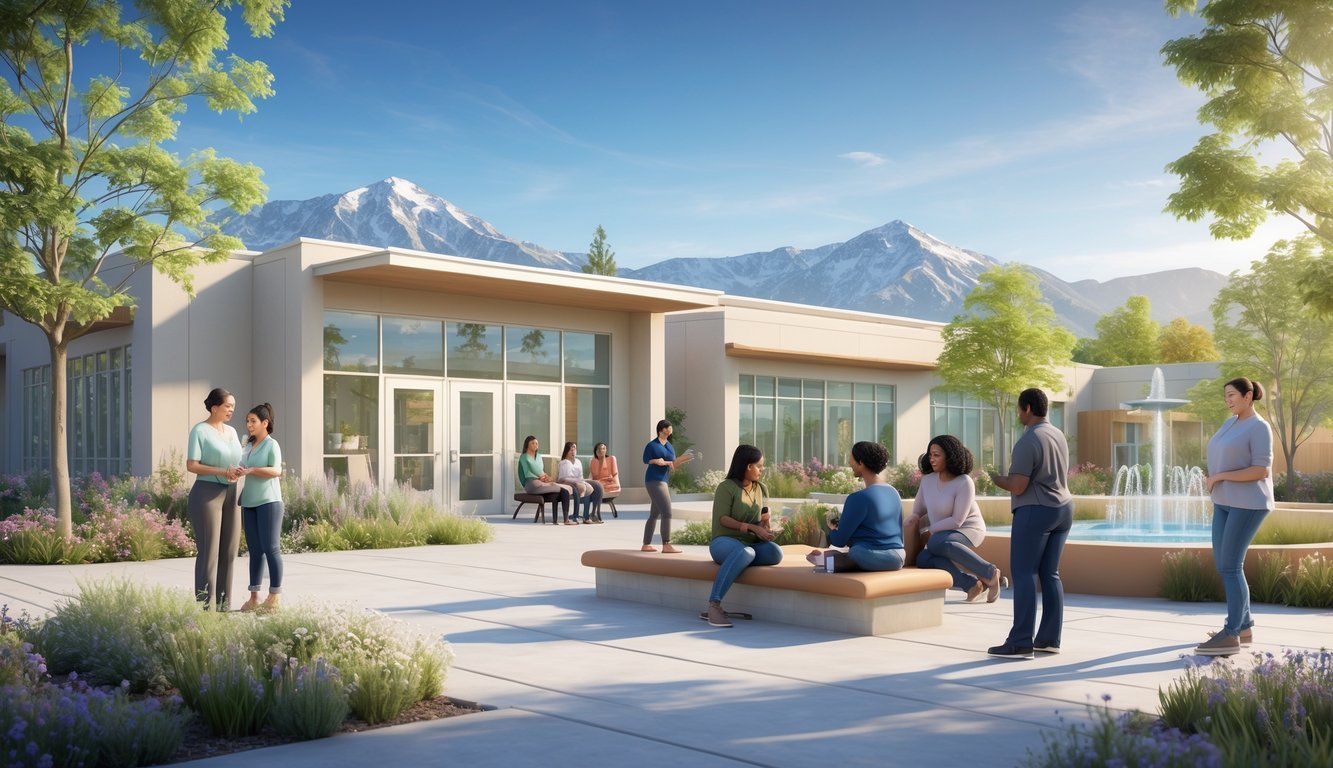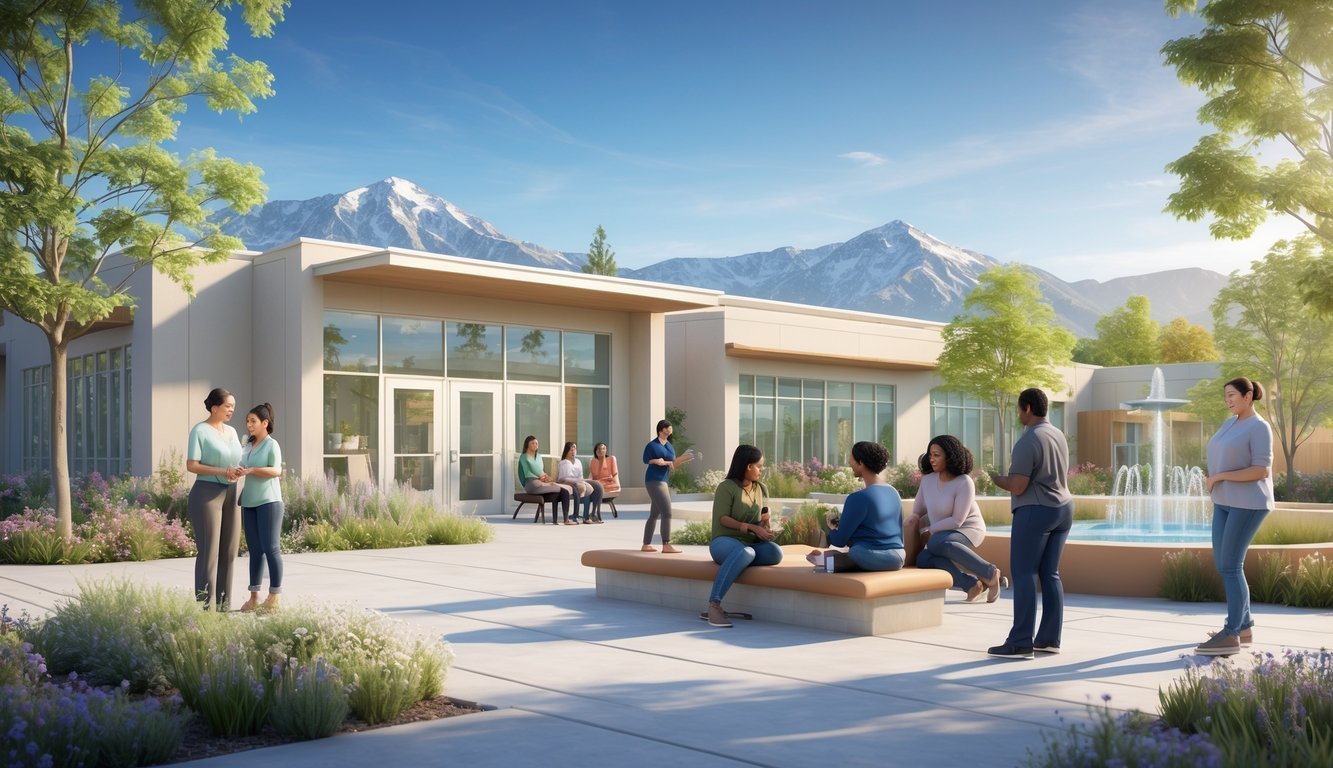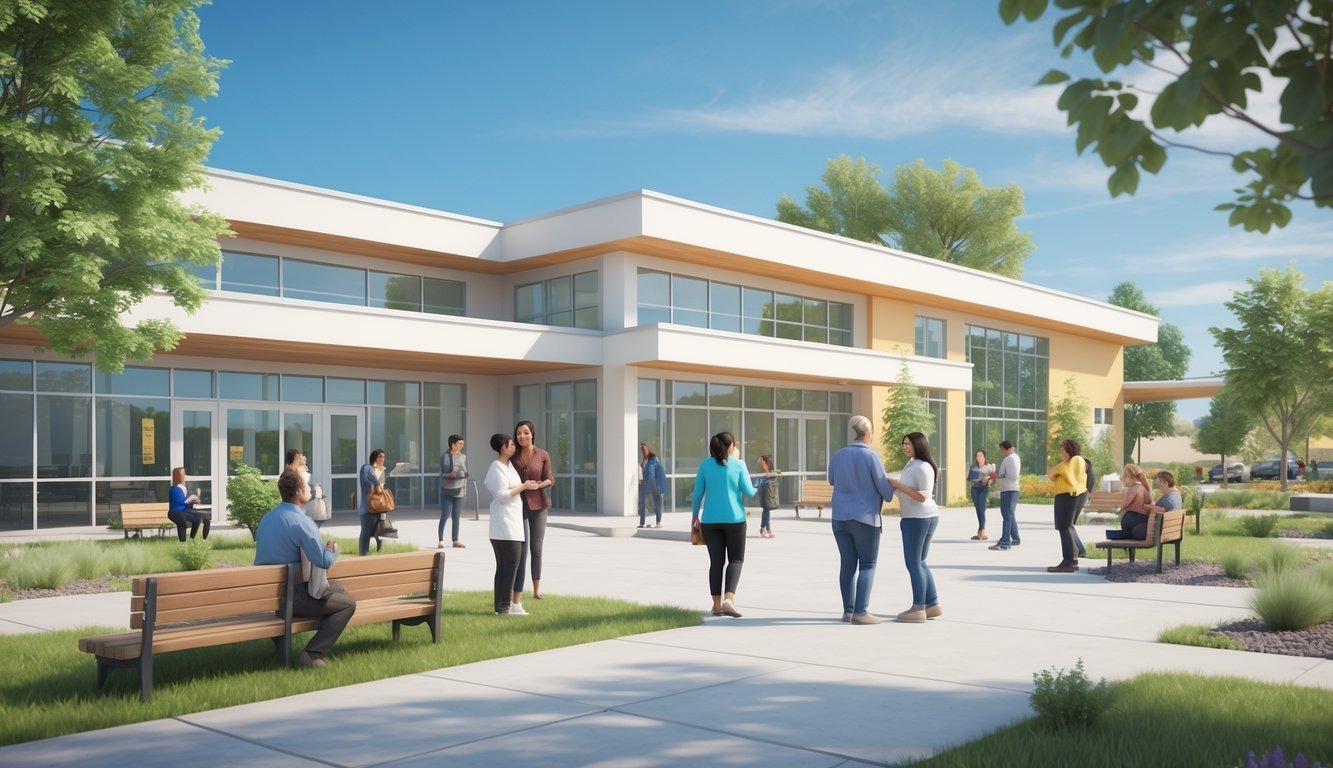PsychNewsDaily Publishers
100 Summit Drive
Burlington, MA, 01803
Telephone: (320) 349-2484
PsychNewsDaily Publishers
100 Summit Drive
Burlington, MA, 01803
Telephone: (320) 349-2484
Utah offers various no-cost mental health resources, including 24/7 crisis support, community counseling, and specialized services for adults and students to ensure accessible care.

Getting quality mental health care shouldn’t depend on your wallet. Utah has several free services to help people get the support they need when life gets tough.

Utah gives you plenty of no-cost mental health options like 24/7 crisis support, community counseling programs, and special services for adults and students. The 988 Suicide & Crisis Lifeline puts you in touch with trained crisis workers at any hour. Different organizations across the state also offer free therapy and support groups.
You can reach out whether you’re in crisis or just looking for regular counseling. Trained professionals are ready to help. Options include walk-in crisis centers and telehealth, so mental health care is within reach for all kinds of communities in Utah.

Utah has several 24/7 crisis services, like the 988 lifeline with trained specialists, mobile app support for families and students, and walk-in crisis care centers for urgent help.
The 988 Suicide & Crisis Lifeline connects you right to Utah’s crisis response team at Huntsman Mental Health Institute. Certified workers answer calls for free, all day, every day.
When you dial 988, you talk to crisis workers who can:
They offer special help for veterans and Spanish-speaking callers. If nobody answers in three minutes, the system sends your call to the National Suicide Prevention Lifeline backup.
Crisis workers at the Utah Crisis Line also work with Mobile Crisis Outreach Teams (MCOT) across Utah. These teams show up in person if needed.
You can also call 801-587-3000 if you’re in the Salt Lake area.
SafeUT Crisis Chat and Tip Line gives real-time emotional support for students, parents, and educators in Utah. The service runs 24/7 through an app or by phone.
There are two main features:
Download the SafeUT app or call 833-372-3388 to talk to a counselor about anything on your mind. They handle everything from school stress to family issues and mental health emergencies.
Licensed counselors are always available on chat. They offer crisis prevention, emotional support, and connect you to resources that fit school settings.
The Huntsman Mental Health Institute Crisis Care Center welcomes walk-ins for psychiatric emergencies. The center gives immediate assessment and stabilization in a safe, caring place.
Here’s what they offer:
The Crisis Care Center helps with severe anxiety, depression, and other urgent mental health problems. You don’t need an appointment during a crisis.
Staff try to keep people in community care instead of hospitalizing them when possible. They work with local mental health authorities to make sure you get follow-up care.

Utah has lots of community programs for free or low-cost mental health care. You’ll find clinics run by universities, walk-in crisis centers for youth, and helplines that connect you to local treatment.
The Utah Community Mental Health Clinic offers affordable therapy for adults across Utah. The clinic is run by the University of Utah’s Department of Educational Psychology.
You get services from graduate student clinicians who are supervised by professionals. Appointments are available in-person or through telehealth.
They help with:
The clinic works to make therapy accessible for adults who need it and can’t pay regular prices. Grad students give the therapy, but licensed supervisors oversee everything.
The Youth Crisis Care Program at Huntsman Mental Health Institute helps kids and teens 24/7. They serve ages 5-17, or 18 if you’re still in high school.
You can just walk in without an appointment if there’s a mental health emergency. The center helps with emotional distress, behavior issues, and thoughts of self-harm.
What you get:
The space feels calm and is made for young people. It’s a good alternative to the ER for mental health crises.
Utah 211 links people to local mental health resources and treatment. Just call 211 from any phone to talk with specialists who know about community programs.
The helpline runs 24/7 and gives info on free or low-cost mental health support near you. They can help you find counseling, support groups, and crisis programs.
The staff explain eligibility and help you apply for services that fit your needs.

Utah has mobile crisis teams that come to you during mental health emergencies. There are also support groups and educational programs that help people before things get worse.
Mobile crisis outreach teams show up in person when someone needs help right away. Trained mental health professionals travel to your location.
The Utah Crisis Line teams up with mobile crisis outreach across the state. You can get these services when a phone call just isn’t enough and you need someone there.
They offer:
Teams work 24/7 in most Utah counties. They coordinate with police and emergency services if needed, but the main goal is mental health care, not law enforcement.
Mobile teams can meet you at home, your job, or anywhere safe. They fill the gap between hotlines and trips to the ER.
Support groups connect people going through similar mental health struggles. These groups give ongoing support, which can be different from what you get in one-on-one therapy.
Lots of Utah healthcare systems run support groups regularly. University facilities offer group sessions along with individual counseling.
Popular groups include:
Groups usually meet weekly or monthly. Most are free or low-cost for Utah residents. Some are led by therapists, while others use peer support.
You can find groups through community centers, hospitals, and faith groups. Since 2020, online groups have become more common.
Educational programs can help you spot mental health warning signs before things get out of hand. Preventive screenings catch issues early, which usually makes treatment work better.
Utah schools and workplaces now offer more mental health education than ever. These programs try to fight stigma and help people learn real coping skills.
Educational Components:
Many Utah health centers offer free mental health screenings. These quick checks look for signs of depression, anxiety, and substance use problems.
University health centers provide screening services to students without charging extra. You can also find screening events at community health fairs from time to time.
Early intervention programs get you connected with treatment services right after your screening. This way, you can deal with concerns before they grow into something bigger.